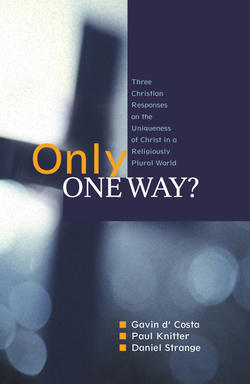Читать книгу Only One Way? - Gavin D'Costa - Страница 21
На сайте Литреса книга снята с продажи.
Social justice
ОглавлениеAs we have seen, the relation between religions from a Catholic perspective has been profoundly oriented towards the common good. My own involvement with Hindus and Buddhists came precisely through this process in my Catholic commitment against nuclear weapons. While I was a doctoral student at Cambridge I was an active campaigner for the Campaign for Nuclear Disarmament (CND). Through CND I came to meet many Hindus and Buddhists (admittedly the majority were European converts to these religions), but found in their commitment to social justice a deep solidarity and a slowly growing friendship through our activities. At times I would despair that no one from my local Catholic community was involved in CND, while the religious commitment of my Hindu and Buddhist friends had led them to CND and a variety of other social justice networks. Some Catholics (including myself) are abysmally ignorant and inactive on the front of social justice despite the goldmine in the nearly one-century-long and constantly developing traditions of social justice.62
As has been made clear above a number of times, one of the major reasons given for interreligious dialogue is the service to the ‘common good’ which is enjoined upon all Catholics. Poverty, the environment, the arms race, the oppression of women and children all over the world are just some of the few horrendous crimes that cry out to God. Christians are called to address these problems in every way they can, and that includes working with those from other religions to bring about the ‘common good’. These alliances can be grassroot communities working to build a well together, or groups to lobby politicians, or official bodies, like the Vatican and certain Muslim states coming together to put pressure on the United Nations regarding the issues of fertility. And of course, issues of social justice might also entail questioning and challenging religious communities, including our own. For instance, the Vatican has made recent demands for reciprocal rights to be granted Christians in Muslim countries, such as Muslims enjoy in most western democracies. I think this is important, but we need to be careful here. It seems problematic to urge Muslim countries to be like western democracies (to be like us). There is surely more mileage in urging Muslim countries to follow the Qur’an more faithfully and show, if possible, that the Qur’an and hadith are capable of generating quite different views about religious freedoms within a Muslim society. I am not implying a type of relativism here, but simply following through my MacIntyrean form of argument: it is better to argue from within a tradition to a goal that one seeks. This type of intra-traditioned form of argument is more likely to convince a sincere Muslim. If that argument fails, then dialectical argument against the religion is required. If that fails, one might resort to international political pressure. If that fails, suffering must be undergone, for violence is not in my view a Christian option.
